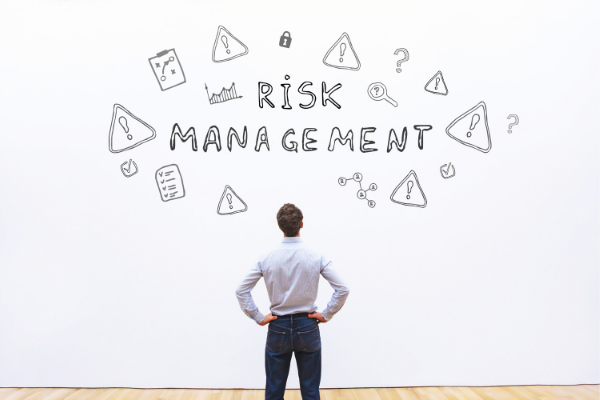4 Benefits of Automated Risk Management in 2023
The pandemic and several high-profile cybersecurity incidents last year have helped make risk management and compliance a top priority for businesses.
If you're involved in risk management at your organisation, there’s sure to be a great deal of responsibility placed on your shoulders to ensure that not only threats to your organisation are managed, but that your company is positioned to meet its objectives and make informed decisions. Given the breadth of potential risks that might affect your workplace, we have compiled a list of some of the factors you should consider when building and executing your risk management plan.

General health and safety risks can be presented in a variety of forms, regardless of whether the workplace is an office or construction site. The key is identifying the types of hazards that could occur, such as physical, ergonomic, chemical and biological, assessing the risks and putting the appropriate control measures in place to make sure that your employees feel safe and taken care of, physically and mentally. The best workplace health and safety measures offer the greatest amount of protection and the most reliability.
All businesses have a reputation to maintain, with their stakeholders, including investors, employees and of course, customers. Decisions made by organisations, as well as incidents where they are liable, can create negative press and significantly affect brand perception. Reputational risk has become of even greater concern for organisations in recent years due in large part to the rise of social media, which allows for almost immediate global communications that make it more challenging for companies to control how they are perceived. Understanding threats to your reputation and how to manage those situations is a must.
Although day-to-day operations are often tried and tested to minimise dangers, incidents or unexpected circumstances could still take place, as the last several months have made blatantly clear. Operational risk refers to the risk of loss resulting from failed internal processes, people or systems or external events. Examples include global crises, IT systems failure, data breaches, fraud, loss of people and litigation, among others. Organisations, therefore, must know the daily functions, processes and systems that are critical to their business operating normally and have plans and procedures in place to manage those risks and ensure 'business as usual'. Software like RiskWare can be incredibly helpful in identifying these critical functions and improving your risk management plans.
While the day-to-day operations of your organisation are important, managing your organisation's strategic goals is just as fundamental to future success. Strategic risks refers to external causes or circumstances that, if they were to occur, would be serious enough to alter the strategic direction of your business, impacting its future success or failure. All organisations are open in varying degrees to strategic opportunities and threats. Exploring how such changes might affect your organisation will help mitigate the issues that might be created.
Government bodies have in place an array of industry laws, regulations, policies and best practices in place to ensure ethical business practices. Not complying with these obligations can present great financial and legal implications for organisations, posing risks to achieving business objectives and operating in general. That said, in today's globally interconnected and fast-paced world, rules and regulations can change quickly and the legal frameworks can be difficult to navigate. This is why compliance management should be prioritised and software like RiskWare's Compliance Module will help to clarify any instances of uncertainty.
Most types of risk have financial consequences, like extra costs or lost revenue. Financial risk, though, specifically refers to money flowing in and out of your business and the chance for sudden financial loss. For example, if your company expands internationally, fluctuating exchange rates impose a financial risk you should take into account, because they will affect the dollar amount your company receives. Ultimately, the goals of any organisation cannot be achieved without sound financial management and it is crucial to anticipate financial risks, assess the impact of those risks and be prepared to react to or avoid adverse events.
If you’ve made it this far and are wondering how to get started, take a look at Riskware’s comprehensive modules. We’ve got you covered.
Ready to Learn how RiskWare can help?Let's organise a time to speak to one of our Risk Specialists and you can learn why millions of users around Australia trust RiskWare to manage their organisations Risks.
|